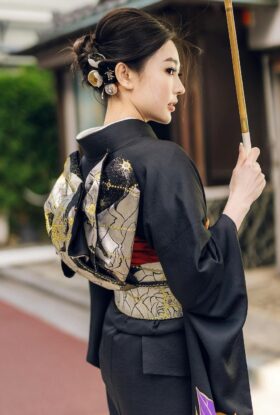The women of England are eminent for many good qualities both of the head and of the 63heart. There we meet with that inexpressible softness and delicacy of manners, which, cultivated by education, appears as much superior to what it does without it, as the polished diamond appears superior to that which is rough from the mine. In some parts of the world, women have attained to so little knowledge and so little consequence, that we consider their virtues as merely of the negative kind. In England they consist not only in abstinence from evil, but in doing good.
There we see the sex every day exerting themselves in acts of benevolence and charity, in relieving the distresses of the body, and binding up the wounds of the mind; in reconciling the differences of friends, and preventing the strife of enemies; and, to sum up all, in that care and attention to their offspring, which is so necessary and essential a part of their duty.
A woman may succeed to the throne of England with the same power and privileges as a king; and the business of the state is transacted in her name, while her husband is only a subject. The king’s wife is considered as a subject; but is exempted from the law which forbids any married woman to possess property in her own right during the lifetime of her husband; she may sue any person at law without joining her husband in the suit; may buy and sell lands without his interference; and she may dispose of her property by will, as if she were a single woman. She cannot be fined by any court of law; but is liable to be tried and 64punished for crimes by peers of the realm. The queen dowager enjoys nearly the same privileges that she did before she became a widow; and if she marries a subject still continues to retain her rank and title; but such marriages cannot take place without permission from the reigning sovereign. A woman who is noble in her own right, retains her title when she marries a man of inferior rank; but if ennobled by her husband, she loses the title by marrying a commoner. A peeress can only be tried by a jury of peers.
In old times, a woman who was convicted of being a common mischief-maker and scold, was sentenced to the punishment of the ducking-stool; which consisted of a sort of chair fastened to a pole, in which she was seated and repeatedly let down into the water, amid the shouts of the rabble. At Newcastle-upon-Tyne, a woman convicted of the same offence was led about the streets by the hangman, with an instrument of iron bars fitted on her head, like a helmet. A piece of sharp iron entered the mouth, and severely pricked the tongue whenever the culprit attempted to move it.
A great deal of vice prevails in England, among the very fashionable, and the very low classes. Misconduct and divorces are not unfrequent among the former, because their mode of life corrupts their principles, and they deem themselves above the jurisdiction of popular opinion; the latter feel as if they were beneath the influence of public censure, and find it very 65difficult to be virtuous, on account of extreme poverty, and the consequent obstructions in the way of marriage. But the general character of English women is modest, reserved, sincere, and dignified. They have strong passions and affections, which often develope themselves in the most beautiful forms of domestic life. They are in general remarkable for a healthy appearance, and an exquisite bloom of complexion. Perhaps the world does not present a lovelier or more graceful picture than the English home of a virtuous family.(Sketches of the Fair Sex, in All Parts of the World)




















































